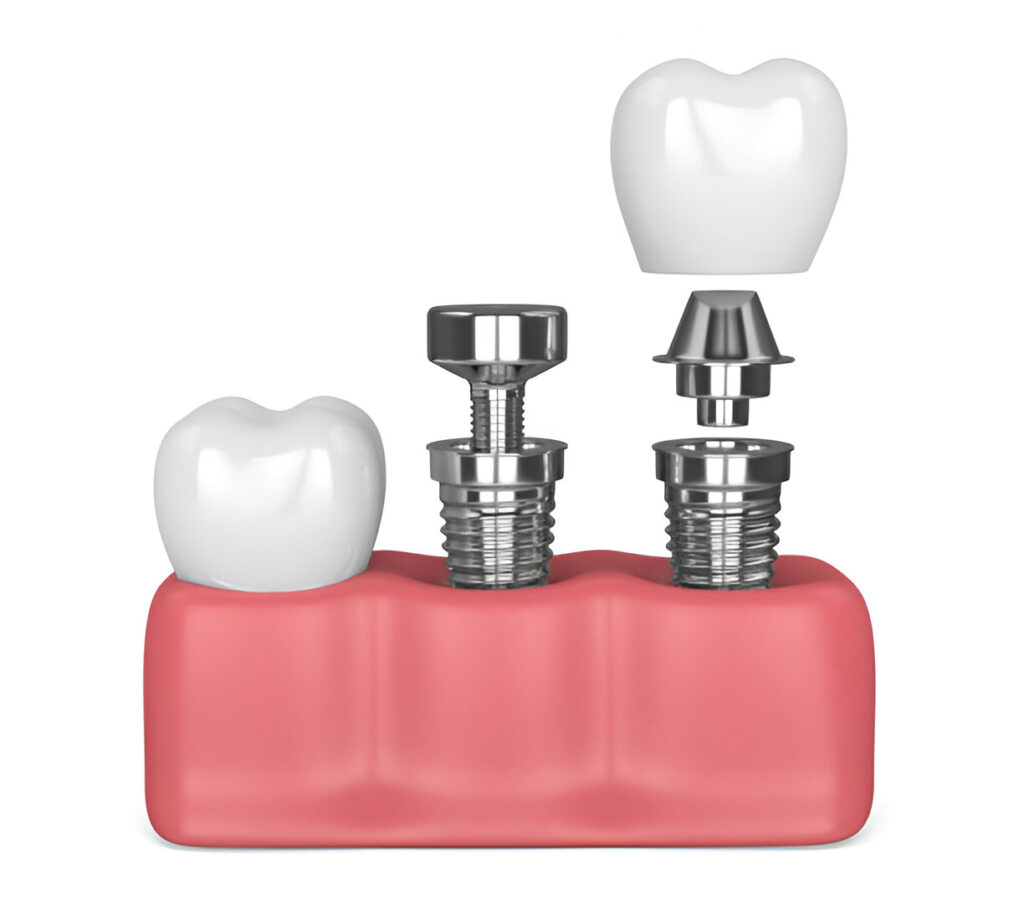Dental implants are a popular and effective solution for replacing missing teeth. They offer a permanent and natural-looking option that mimics the function and appearance of your own teeth. However, many people wonder, “When is it too late to get dental implants?” In this article, we will explore when it’s still possible to get dental implants and what factors can affect the timing. Let’s dive into the key aspects that will help you determine if dental implants are the right choice for you.
What Are Dental Implants?
Professional dental implants in Aberdeen are small titanium posts that act as artificial tooth roots. They are placed into the jawbone to support a crown, bridge, or denture. The implant integrates with the bone, providing a stable and secure foundation for the replacement tooth. Dental implants in Aberdeen are known for their durability, functionality, and aesthetic appeal.
Can I Get Dental Implants at Any Age?
Age is not a limiting factor when it comes to dental implants. As long as you are in good overall health and have healthy gums, you can consider getting dental implants at any age. However, age does not guarantee that dental implants will be a viable option. The key factors that determine your eligibility for implants include the health of your gums, jawbone density, and medical history.
Why No Dairy After Dental Implant
The Impact of Bone Loss
One of the most important factors that influence whether it is too late to get dental implants is the condition of your jawbone. When a tooth is lost, the bone in the jaw can begin to deteriorate. This is known as bone resorption. The longer you wait after losing a tooth, the more bone you lose. Bone loss can make it difficult or impossible to place a dental implant successfully.
How Long Do Dental Implants Last?
Typically, significant bone loss occurs within the first six months to a year after losing a tooth. If you wait too long to get an implant, you may need additional procedures, such as bone grafting, to restore the bone before implant placement. Bone grafts can be effective, but they require time to heal before implants can be placed, making the process longer.
How Much Does a Single Dental Implant Cost in the UK?
Can Bone Grafting Help?
If you have lost bone due to prolonged tooth loss, you may still be eligible for dental implants with the help of bone grafting. A bone graft is a surgical procedure in which bone material is added to the jawbone to promote bone growth. This allows for better stability and support for the dental implant.
Bone grafting can be performed in various ways, depending on the location and severity of bone loss. While bone grafting can make dental implants possible, it is an additional step in the process and may delay the treatment timeline.
What is the Best Age to Get a Tooth Implant?
Other Factors to Consider
While bone health is a major factor, there are other conditions that can impact your ability to get dental implants. Some of these include:
- Gum Disease: Healthy gums are essential for dental implant success. If you have untreated gum disease, it can affect the implant’s ability to integrate with the bone. Your dentist will need to treat any gum disease before proceeding with the implant placement.
- Systemic Health Conditions: Certain health conditions, such as diabetes or autoimmune disorders, may affect the healing process after dental implant surgery. If you have a medical condition, it is important to discuss it with your dentist before deciding to proceed with implants.
- Smoking: Smoking can significantly impact the success of dental implants. Smokers are at a higher risk of implant failure because smoking reduces blood flow to the gums, which hinders the healing process. It is advisable to quit smoking before undergoing dental implant surgery.
Can You Lose Your Gums Around Dental Implants?
The Right Time for Dental Implants
The best time to get dental implants is as soon as possible after losing a tooth. This is because waiting too long increases the risk of bone loss and complicates the process. If you are considering dental implants, it is important to see a dentist as soon as possible to discuss your options.
In some cases, dental implants can be placed immediately after tooth extraction. This is known as immediate implant placement. This approach helps preserve the bone and minimizes the time needed to replace the tooth. However, not everyone is a candidate for immediate placement, and your dentist will need to evaluate your individual case.
Can NHS Pay for My Dental Implants?
When Is It Too Late for Dental Implants?
It is never truly “too late” to get dental implants, but there are limitations to how long you can wait. If you have lost a significant amount of bone or have severe gum disease, it may be more difficult to place implants without additional procedures like bone grafting or gum treatments. While these procedures can still make implants possible, they may extend the treatment timeline and increase the cost.
How Many Teeth Can One Implant Replace?
If you have waited for many years after losing a tooth and have experienced significant bone resorption, it is important to consult with an experienced implant dentist. They will assess your jawbone and determine if implants are still a viable option.
How Much Are All-on-4 Dental Implants in the UK?
Conclusion
In conclusion, dental implants are a great option for replacing missing teeth, and it is rarely “too late” to get them. While waiting for too long can complicate the process due to bone loss, there are options like bone grafting that can help restore the jawbone. The key to successful dental implants is early intervention. The sooner you address tooth loss, the easier the process will be.
If you are considering dental implants, consult with your dentist to discuss your specific needs and determine the best course of action. Don’t wait too long to restore your smile and oral health—dental implants can give you back the function and confidence you deserve.
Schedule Your Consultation Today!
Get Started with Your Dental Implant Journey
If you are ready to explore dental implants, contact us at Holburn Dental and Implant Centre. Our experienced team will guide you through the process and help you determine the best treatment options for your unique needs. Book your consultation today!
Frequently Asked Question
How long do dental implants last?
Dental implants can last a lifetime with proper care, including regular brushing, flossing, and dental check-ups. They are a durable, long-term solution for tooth replacement. However, the crown placed on the implant may need replacing after 10-15 years due to wear.
Can I get dental implants if I have diabetes?
Yes, people with diabetes can get dental implants, but good control over the condition is crucial. Uncontrolled diabetes can hinder healing and increase the risk of complications. Consult your dentist to ensure your condition is well-managed before proceeding with implant surgery.
What are the risks of dental implants?
The risks of dental implants include infection, nerve damage, implant failure, and damage to surrounding teeth or tissue. These risks are rare but can occur, especially in patients with certain health conditions. It’s essential to follow post-operative care instructions to minimize complications.
How long does the dental implant process take?
The dental implant process can take several months. Initially, the implant post is placed in the jawbone and allowed to integrate (osseointegration). After this, a crown or other restoration is placed. The entire process usually takes 3-6 months, depending on the individual and treatment complexity.
Can dental implants be done immediately after tooth extraction?
In some cases, dental implants can be placed immediately after tooth extraction. This is known as immediate implant placement and helps preserve the bone. However, not everyone is a candidate for this procedure, and your dentist will assess your situation to determine the best approach.




